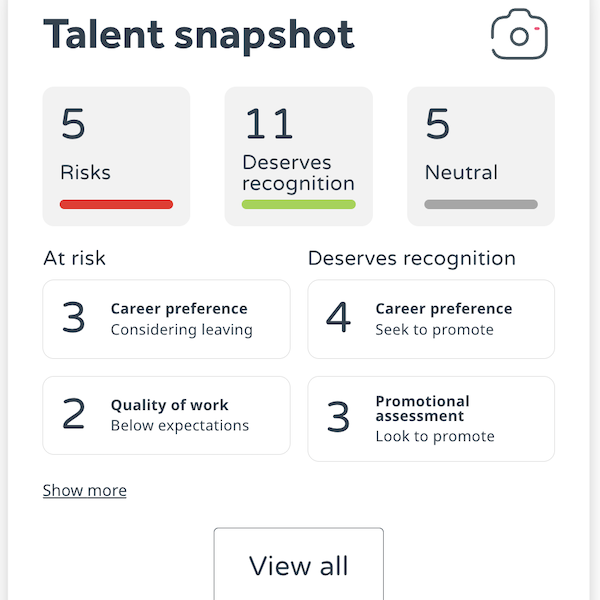It may be an old adage that employees leave managers not organisations, but the reason it sticks around is because there is truth in it. New research published by UK job board Totaljobs uncovers a worrying divide in the relationships between line managers and staff. The survey reveals as many as half of UK workers (49%) have quit a job due to the relationship with their boss going sour.
This is a damning indictment of management skills in the UK and is not only detrimental to the profit in individual organisations, but is also negatively impacting the UK’s productivity as a whole. The disconnect between management and employees is bad for business and it’s bad for our economy.
“Half of UK workers have quit a job due to poor management.”
Research by The Economic and Social Research Council (ESRC) found that better managed organisations within the same industry and country tend to earn more profits and grow faster. The report concludes that improving management skills is key to higher productivity.
The evidence overwhelmingly suggests that we have a huge management skills issue to solve in the UK. The most pressing question is how do we solve it? A good start would be for managers to spend more time with their staff.
How has poor management proliferated in the UK?
Issues of leadership and management in small businesses have been explored extensively. A 2016 report by the UK’s Federation of Small Businesses highlighted that only a quarter (27%) of small business owners said they found it easy to manage staff, which means the vast majority struggle with managing people. A fifth (20%) said they found it difficult.
“Nearly three-quarters of small business owners struggle with managing people.”
Micro and small businesses usually set out with people unused to leading staff. The focus tends to be on honing skills for better business strategy, rather than developing the skills required to manage people. Most leaders, understandably, don’t set out with a great set of HR skills and many fail miserably when it comes to managing a growing team.
To compound issues, promotions to managerial positions within SMEs often come without any formal training on how to manage people and little guidance or support from above.
There are over 5.7 million SMEs in the UK, which make up 99.9% of all UK businesses. Small and medium-sized businesses don’t have the best track record for producing great managers, so it’s really no wonder there are so many bad managers out there.
Speaking to People Management, Ben Willmott, head of public policy at the Chartered Institute of Personnel and Development (CIPD), said: “Many owner-managers [of SMEs] have very limited experience around managing people and, if you ask them about the challenges facing their organisations and businesses, they won’t say they’ve got people management issues, they will talk about the business challenges.”
Recognising there is a people management problem is step one. Addressing poor management skills follows.
Let’s take a closer look at what good management looks like.
What makes a good manager?
Managers have the capacity to make or break a workplace. A great manager inspires people. A poor manager drives people to leave.
Good managers motivate, encourage and oversee effective, happy, high performing teams. Their staff are committed and will go the ‘extra mile.’ They model their own behaviour on what they expect from others, they care about employee well-being, and they know instinctively how to get the best out of people. Above all a great manager has the ability to listen, communicate effectively, empower, coach and support staff.
So how do you develop the management skills required to be a great team leader? As well as possessing the virtues of integrity, honesty and respect, being a good manager starts with listening and effective communication. Spending time with your team is essential if you are to build trust and understand what your people need in order to succeed.
Why managers need to spend more time with their employees
Poor management takes a heavy toll on staff morale and ultimately leads to employee disengagement. While weeding out bad managers may seem like the best starting point, training them to manage could have surprising results. Coaching managers to coach staff has knock-on effects.
Understanding employees at ground level is the starting point for resolving employee engagement issues. A great manager is also an effective coach. This means getting to know each staff member, understanding their strengths and weaknesses and supporting them to have a positive employee experience. It takes time, but the pay off is potentially huge. In order for managers to better understand the pinch points in the employee experience they need to spend more time with their staff.
Managers need support and training too
Rob Wall, Head of Policy at The Chartered Management Institute (CMI), said: “The latest CMI research is yet more evidence of the links between management and productivity. If we are to solve the UK productivity puzzle once and for all, we need to recognise the critical role that management training plays and turn our 2.4 million ‘accidental managers’ into competent, confident, productive leaders.”
“Management training plays critical role in turning ‘accidental managers’ into competent, confident, productive leaders.”
How WeThrive helps managers engage with staff
Most managers aren’t intentionally or inherently bad. They are usually overloaded with work and when it comes to effectively managing their team, they just don’t know where to begin. With budgets to balance, workflow to manage and endless meetings to attend, how can managers possibly find the time to investigate what each individual staff member needs to improve and succeed?
Is that you? If only you had a live on-line report to find out how your team really feels? Running a WeThrive employee engagement survey doesn’t just give you a list of results. It also provides you with the actionable suggestions you need to resolve the problems highlighted in your team.
Our new dashboard pulls everything a manager needs onto one screen, which means you can see at a glance where you need to focus your efforts to improve engagement and get the best out of your employees. Our learning resources are also easily accessible to support you in building a stronger connection with your team.
If you’d like to find out what is bothering your employees and receive guidance on making positive change, contact the WeThrive team today.



